Beware of This “Senior Killer” During Cold Weather: Headaches, Dizziness, and High Blood Pressure!
Recently, 15 national departments, including the National Health Commission of the People’s Republic of China and the National Development and Reform Commission, jointly issued the National Action Plan for Addressing Senile Dementia (2024-2030). As China’s population ages and life expectancy increases, the number of cognitive impairment patients continues to rise, posing severe challenges to individuals, families, and society.
2025/02/05
Recently, 15 national departments, including the National Health Commission of the People’s Republic of China and the National Development and Reform Commission, jointly issued the National Action Plan for Addressing Senile Dementia (2024-2030). As China’s population ages and life expectancy increases, the number of cognitive impairment patients continues to rise, posing severe challenges to individuals, families, and society.
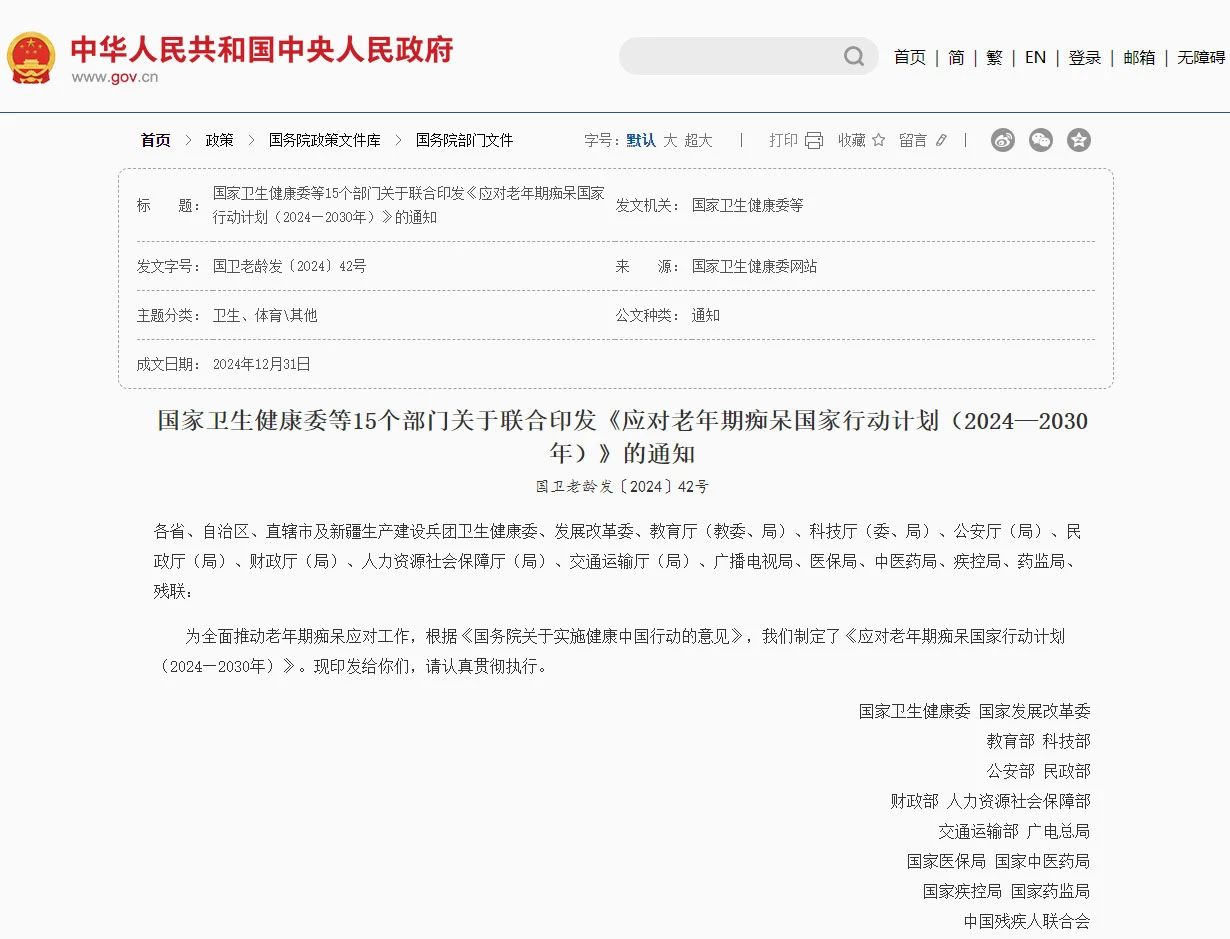
Vascular dementia, a chronic progressive cognitive disorder, is widely regarded as the second most common type of dementia after Alzheimer’s disease. Its incidence has surged alongside the rise of strokes and cardiovascular diseases. Cold weather often triggers a spike in cerebrovascular and cardiovascular conditions. What can TCM (Traditional Chinese Medicine) offer for vascular dementia?
Medicine Rooted in Classical Prescriptions
TCM believes that vascular dementia falls under the category of “dementia syndrome and forgetfulness”. The classical book “Miscellaneous Diseases: Origins and Treatments” notes, “Post-stroke forgetfulness,” reflecting ancient recognition of the link between cerebrovascular disorders and cognitive decline.
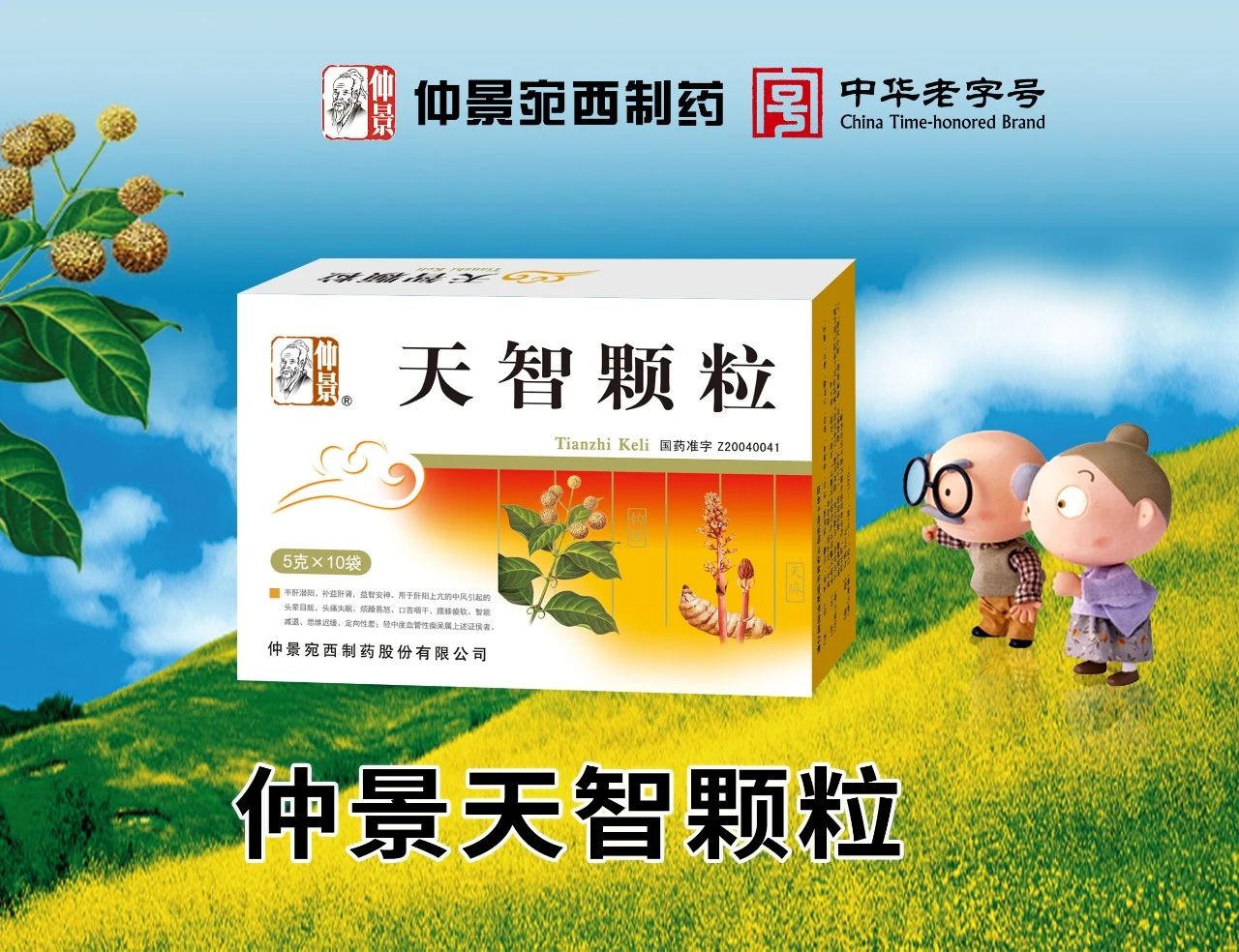
When it comes to the treatment of vascular dementia, what effective methods does TCM offer Researchers in the field of TCM have embarked on relentless exploration. Tian Zhi Granules, derived from a classic ancient prescription and jointly developed by the Institute of Chinese Materia Medica China Academy of Chinese Medical Sciences, and Zhongjing Wanxi Pharmaceutical Co., Ltd., emerged at this critical juncture. Tian Zhi Granules are formulated by adding sophora flower to the ancient prescription Tianma Gouteng Decoction. Speaking of Tianma Gouteng Decoction, one cannot help but mention a seminal book published in 1958.
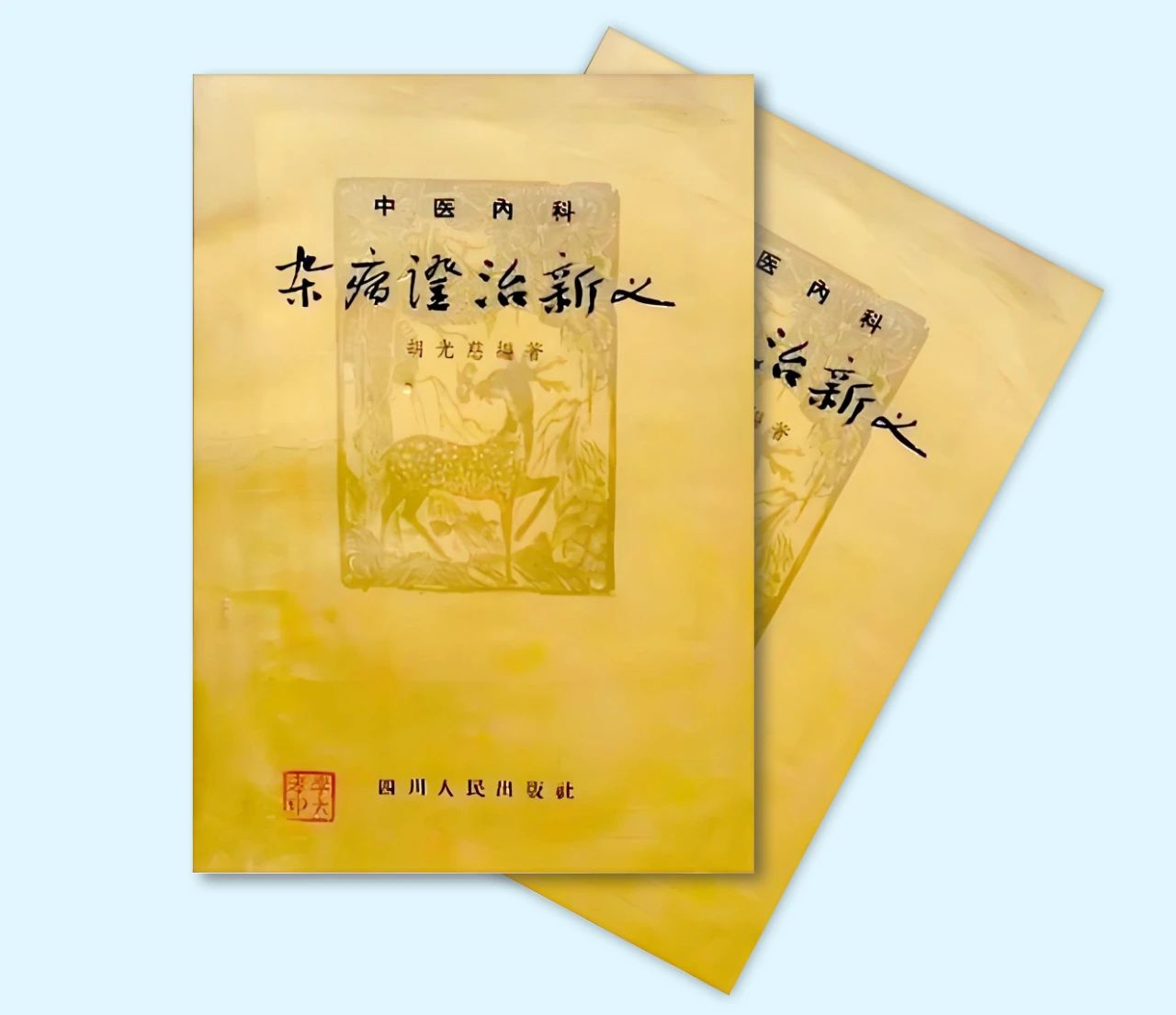
The story of Tianma Gouteng Decoction traces back to 1958, when Hu Guangci authored New Approaches to Internal Medicine in TCM, describing it as: “A formula for calming Liver Yang and descending adverse Qi. It primarily uses Tianma (Rhizoma Gastrodiae), Gouteng (Ramulus Uncariae Cum Uncis), and Shengjueming (Cassia seed) to pacify the Liver, dispel wind, and suppress rebellious Qi. Auxiliary herbs include heat-clearing Gardenia and Scutellaria, blood-activating Achyranthes root, and Liver-Kidney-nourishing Sangjisheng (Herba Taxilli) and Duzhong (Cortex Eucommiae). Additional herbs like Yejiaoteng (Caulis Polygoni Multiflori) and Zhufushen (Sclerotium Poriae Pararadicis) soothe the mind and relieve insomnia. Thus, it is an excellent medicine for Liver-related headaches, dizziness, and sleep disturbances.”
Tianma has long been revered in TCM for treating headaches. Historical records, such as “the Records of the Three Kingdoms”, mention that Cao Cao, plagued by chronic headaches from wartime stress, found relief after taking Tian Ma pills prescribed by the legendary physician Hua Tuo.
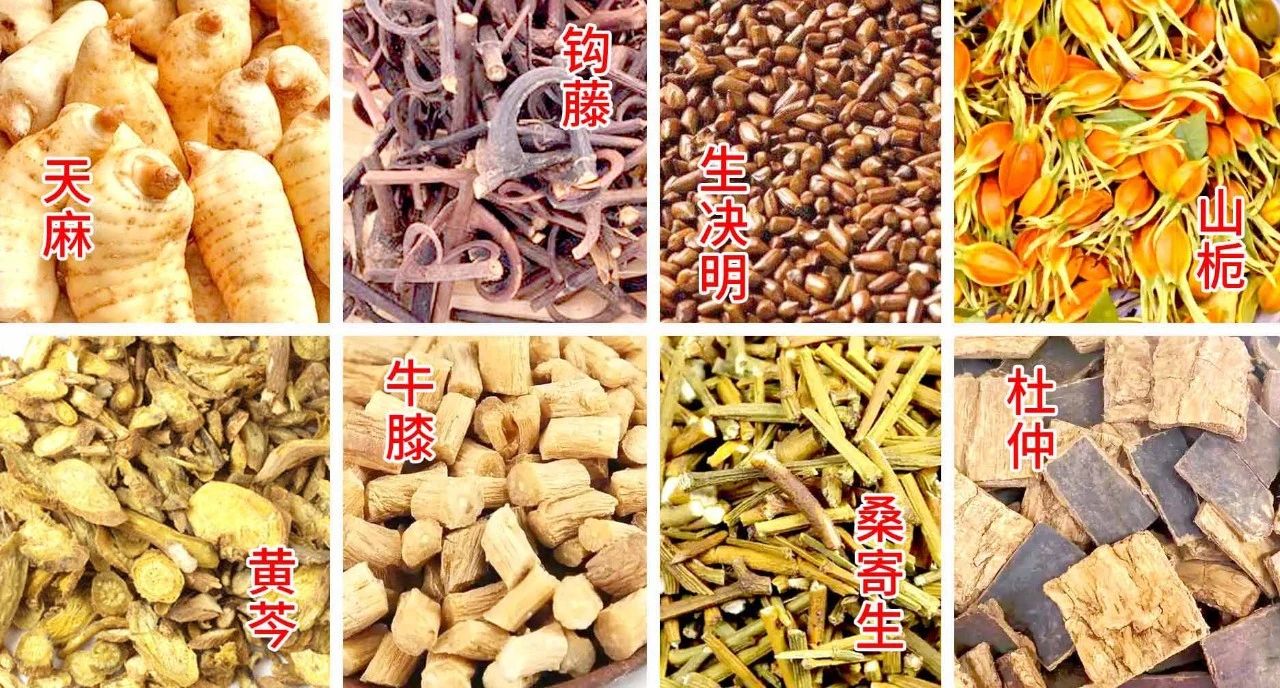
Tianma Gouteng Decoction possesses the effects of calming liver yang, nourishing liver and kidney, and tranquilizing the mind and stabilizing the will. Tianzhi Granules are derived from Tianma Gouteng Decoction with the addition of sophora flower, exhibiting the functions of nourishing liver and kidney, as well as calming liver yang. They are suitable for patients with vascular dementia characterized by yin deficiency of liver and kidney and hyperactivity of liver yang.
Liver Yang Hyperactivity
As the saying goes, “When Liver Yang rises, numerous illnesses emerge,” which stems from the characteristics of the liver. In TCM, it is said that "the liver governs growth and development," meaning that liver qi rises and disperses outwardly, giving our bodies vitality and vigor.
The moderate rise and dispersion of liver qi depend on the combined action of Liver Yang and Liver Yin. However, if Liver Yin is insufficient or Liver Yang is excessive, leading to over-rise of Liver Yang, this is abnormal.
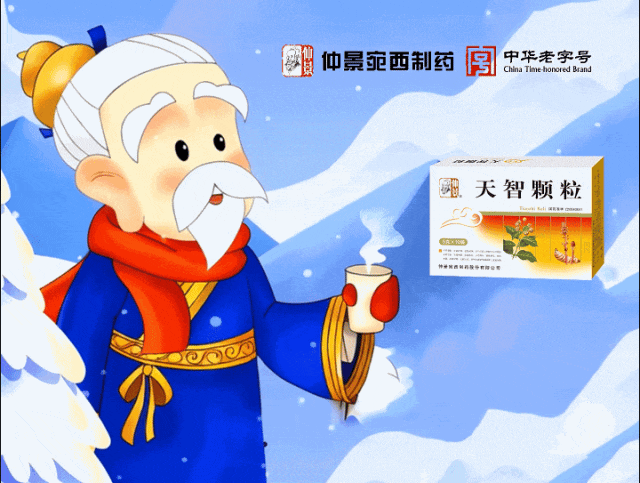
Over-rise of Liver Yang can cause symptoms such as dizziness, tinnitus, headaches, eye pain, irritability, insomnia, and excessive dreaming. Moreover, if Liver Yang Hyperactivity is ignored for a long time, it can lead to internal liver wind, causing hypertension, cerebral infarction, stroke, and other diseases.
In such cases, Tian Zhi Granules come into play. Tian Zhi Granules have been used in clinical practice for many years and are widely applied in the treatment of symptoms caused by Liver Yang Hyperactivity in stroke patients, including dizziness, headaches, insomnia, irritability, bitter taste and dry throat, soreness and weakness of the waist and knees, decreased intelligence, slowed thinking, poor orientation, and other conditions.
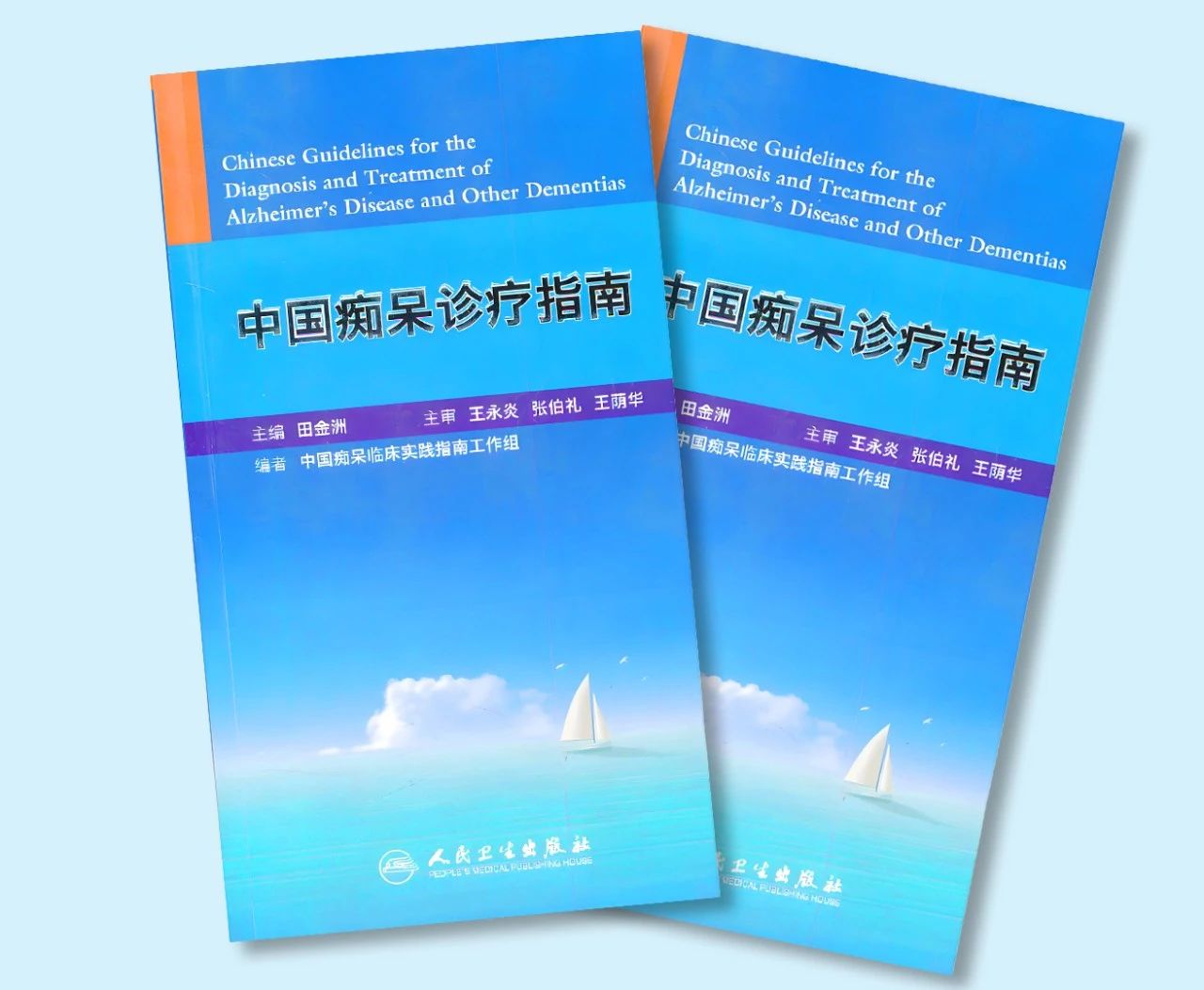
In the “Chinese Guidelines for the Diagnosis and Treatment of Dementia,” “Chinese Guidelines for the Diagnosis and Treatment of Alzheimer's Disease Dementia,” “Clinical Application Guidelines for the Treatment of Vascular Dementia with Proprietary Chinese Medicines,” “Guidelines for the Integrated Chinese and Western Medicine Diagnosis and Treatment of Cerebral Infarction,” and “Guidelines for the Integrated Chinese and Western Medicine Diagnosis and Treatment of Alzheimer's Disease,” Tian Zhi Granules are recommended for use.
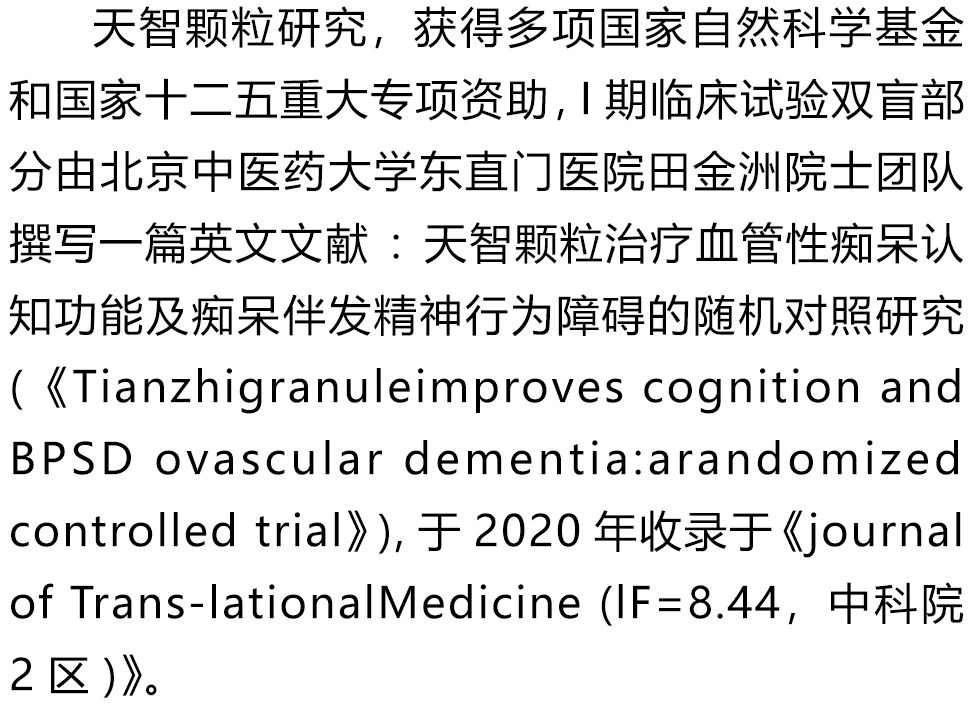
It should be noted that in TCM, hypertension is classified into four syndromes: Liver Yang Hyperactivity, Yin Deficiency with Yang Hyperactivity, Yin-Yang Deficiency, and Wind-Phlegm Obstruction. Tian Zhi Granules should only be taken after clinical diagnosis and syndrome differentiation by a physician, and are not suitable for patients with hypotension.
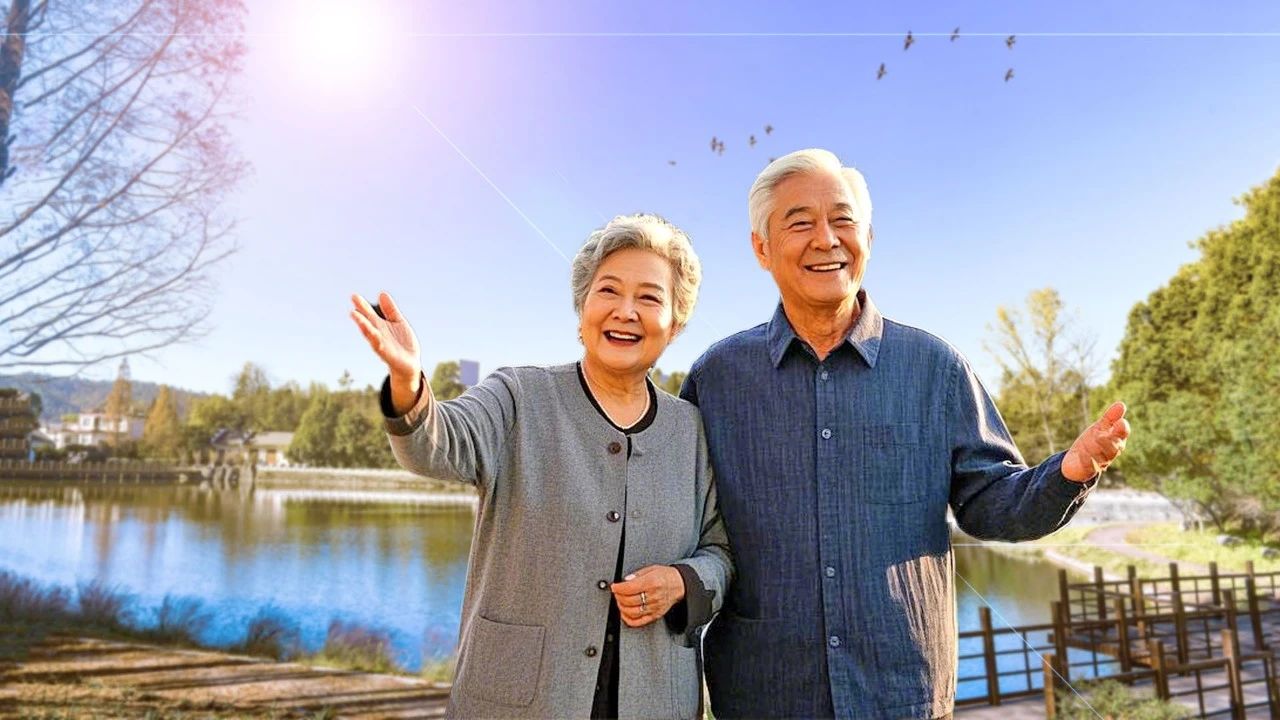
It is worth mentioning that in terms of pharmacological treatment, the medications for Alzheimer’s disease, vascular dementia, and vascular cognitive impairment are basically the same. We cannot prevent the onset of these diseases or reverse their progression, but we can only improve the symptoms. Therefore, daily care is very important. For the sake of one’s own health and family happiness, everyone should learn to relieve stress, maintain emotional stability, and keep a peaceful mindset.



